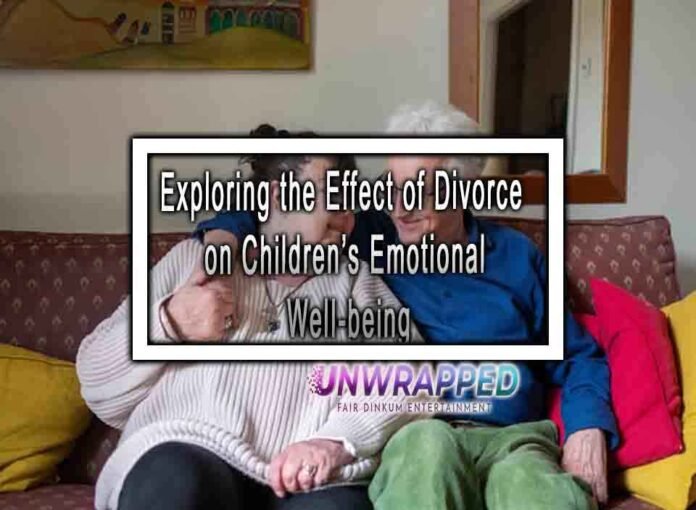Divorce can have a significant impact on children’s emotional well-being. While not all children will experience negative effects, divorce can be a challenging and emotionally distressing experience for many. Here are some of the ways in which divorce can affect children’s emotional well-being:
1. Anxiety and Stress:
- Children may experience heightened anxiety and stress during and after a divorce. The uncertainty, changes in routines, and parental conflict can contribute to these feelings.

2. Anger and Resentment:
- Many children feel anger and resentment towards their parents for the divorce. They may perceive the divorce as a betrayal or a loss of stability.
3. Depression:
- Some children may become depressed following a divorce. The upheaval in their lives and feelings of sadness can lead to clinical depression in some cases.
4. Low Self-esteem:
- Divorce can erode a child’s self-esteem, especially if they blame themselves for the breakup. They may feel rejected and unloved.
5. Behavioral Issues:
- Children may exhibit behavioral issues such as acting out, defiance, or regression. These behaviors are often ways of expressing their emotional distress.
6. Academic Problems:
- Divorce can also have an impact on a child’s academic performance. They may find it difficult to concentrate, leading to lower grades.
7. Attachment Issues:
- Some children may develop attachment issues, struggling to form secure emotional bonds with others due to feelings of abandonment.
8. Guilt and Self-Blame:
- Children often grapple with feelings of guilt and self-blame, believing that their actions or emotions may have caused the divorce.
9. Fear of Future Relationships:
- Divorce can instill a fear of future relationships and commitment in some children, making it challenging for them to trust and form healthy relationships later in life.
10. Emotional Rollercoaster:
- Children’s emotions can fluctuate like a rollercoaster. They may experience a wide range of emotions, from sadness and anger to confusion and relief.
11. Ambivalence:
- Some children may feel ambivalent about the divorce, experiencing both relief and sadness. This ambivalence can be confusing for them.
12. Coping Mechanisms:
- Children may develop various coping mechanisms, some of which may be unhealthy, such as withdrawal or seeking excessive reassurance.
13. Long-term Effects:
- The emotional impact of divorce on children can extend into adulthood, affecting their future relationships, mental health, and overall well-being.
14. Positive Outcomes:
- It’s important to note that not all children experience negative emotional outcomes from divorce. In some cases, children may adapt well, and the divorce may lead to a more stable and peaceful family environment.
Support from parents, communication, therapy, and a stable and nurturing environment can mitigate some of the negative emotional effects of divorce on children. Each child’s response to divorce is unique, and the level of impact varies. It is essential for parents to be attuned to their children’s emotions and provide the necessary support to help them navigate this challenging period and promote their emotional well-being.












